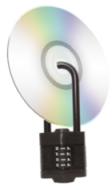The music scene: legal vs. illegal


I wanted to explore the two different angles to this: DRM protection or no-DRM protection, and the ability to actually download and/or gain music from an online source. I'll start with a little background.
DRM is two sided. It stands for "Digital Restrictions Management", which essentially allows those who legally purchase media from t'Internet like music, videos and software, to use them for themselves and nobody else. Sounds fair, but when you get into the nitty-gritty of it, it means you can't share a really great song with a friend; you can't transfer your music or media onto different devices such as portable devices some of the time, and if your computer buggers up, you can't get the music back.
On the other side of it, it's a digital padlock which your computer only has the key for. It means regardless of what happens, the end user will/could end up losing out more than those who provide the media - the record producers, the film directors and writers.
For Mac users it's quite easy, because iTunes is already integrated into your computer. For Windows users, you've got Windows Media Player (unless you have the "N" version because of those bureaucratic tossers in Brussels), but with all this legal crap thrown at us, we're not free to do what we really want to do. I'm just going to take a random selection of legal download service examples.
Which is best to use - the legal way, or the illegal way? Will I now get fired for this post? Or will the lawyers phone me in the middle of the night screaming at me? All very possible.
Not only that, if you download files which are DRM'd, you'll be able to transfer them to your iDevice but really lucky if you can get them working ion any other device, computer or music application.
Napster: after being shut down years ago for being an illegal peer-to-peer service, it's now a legitimate online music retailer. You pay around $20 a month which lets you download anything you want and as much as you want, or around $30 if you want to be able to download music with a more lenient DRM licence, allowing you to transfer to other devices.
It doesn't work with Mac's or iPods; serves you right for being so arrogant and using a crap computer with an equally stupid music player which works with one service only - it's own. The DRM blows its own brains out when you stop paying for the service, so you have to keep paying to keep playing.
After that, it'll probably cost you to renew the subscription, and even then, you're downloading DRM files again. You'll be able to download and playback on the phone, and that's it. You won't be able to share it and you won't be able to back it up, but at least once your subscription expires, you'll still be able to play the music files - so not all is lost.
Download illegally: it won't cost you anything, the music tracks are DRM free, but there's not a guaranteed chance you'll find what you want. On the other hand, the entire world wide web, all the peer-to-peer networks and BitTorrent networks are all much bigger than the entire collection of downloadable media from all of the above mentioned services.
You run a slight risk of getting caught, fined and thrown in prison, but provided you don't distribute them back on a massive scale, the chances are you'll be fine. If you really feel guilty about "stealing" money from those big, rich, important record producers and the spoilt, obnoxious and arrogant music star, put a penny or a couple of cents into a charity box at the local superstore.
I don't condone illegal activity, to the point where I'll discourage serious crimes and suchlike. But downloading music should be more open and simple, cost much less and have much lower restrictions. Under the DMCA, you can't even lend your little sister a CD of yours to listen to or to copy. It's bloody ridiculous and annoys the hell out of me, but this is how the world works I'm afraid.
Unfortunately, and the CNET lawyers really won't like this much, downloading music illegally, as in without buying it, actually gives you the most freedom over your music. Copy it, share it, move it, play it, edit it, convert it, or upload it again - you can barely do any, definitely not all, of these things with DRM'd music.
Or... just work out how to remove the DRM from legally downloaded music. It's still illegal, if not more illegal, but at least you're buying the damn thing.